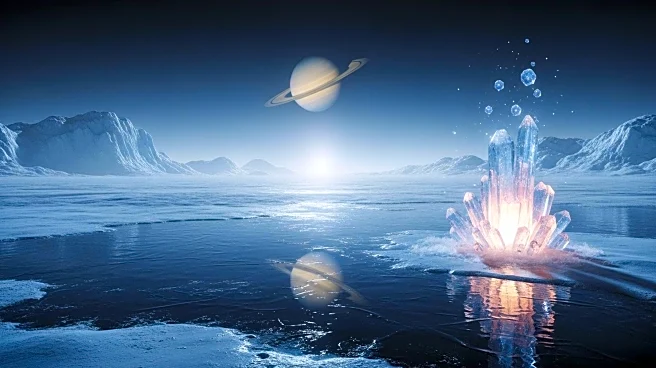What's Happening?
Scientists have discovered complex organic molecules in the icy plumes of Saturn's moon Enceladus, suggesting the presence of a subsurface saltwater ocean with conditions potentially suitable for life. This discovery was made using data from the Cassini mission, which previously identified water ice grains and vapors erupting from the moon's surface. The findings, published in Nature Astronomy, indicate complex chemical processes that could lead to biologically relevant substances.
Why It's Important?
The discovery of organic molecules on Enceladus significantly enhances its status as a prime candidate in the search for extraterrestrial life. The presence of these molecules suggests that the moon's subsurface ocean may harbor the necessary conditions for life, prompting further scientific interest and exploration. This finding supports the European Space Agency's plans to investigate Enceladus for signs of life, potentially leading to groundbreaking discoveries about life beyond Earth.
What's Next?
The European Space Agency is planning a mission to Enceladus, expected to launch around 2042, to search for biological signs. This mission will include an orbiter and a lander to study the moon's plumes and surface. The scientific community anticipates that these efforts could provide critical insights into the potential for life on other celestial bodies, influencing future space exploration strategies.









